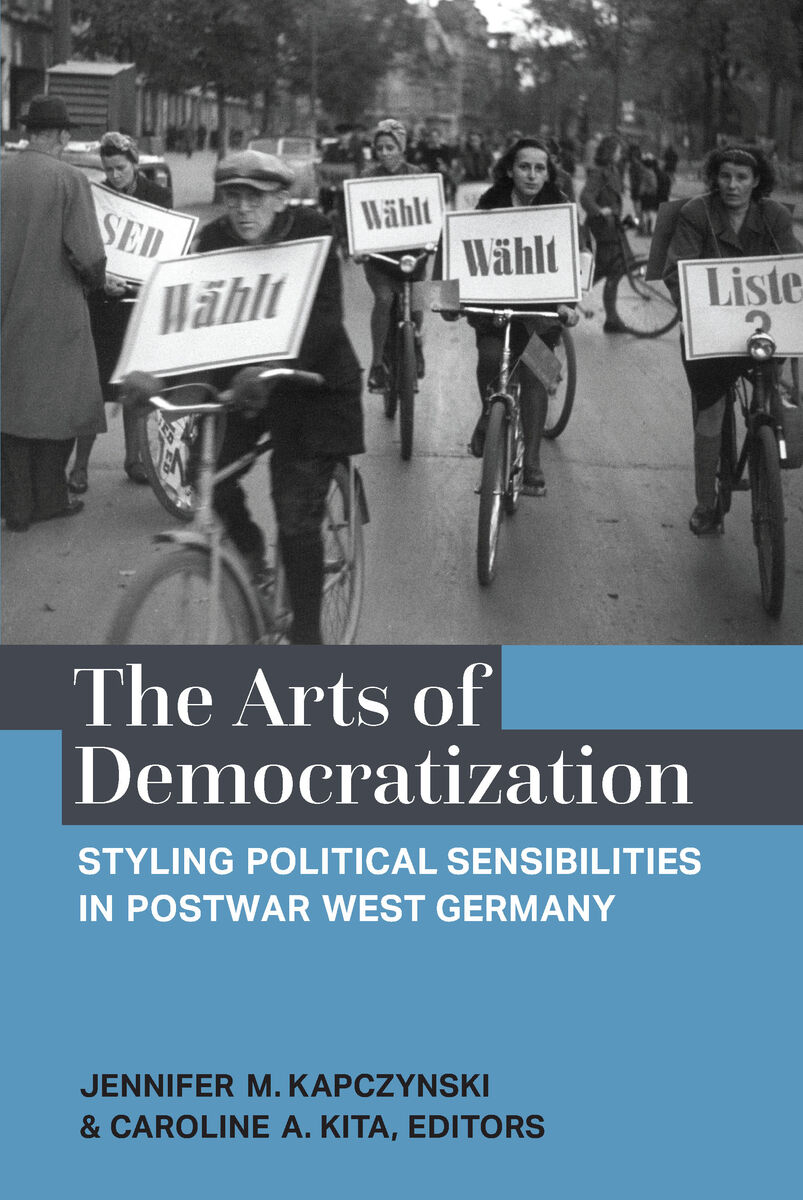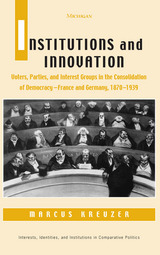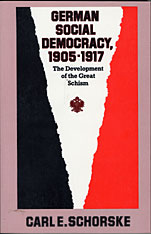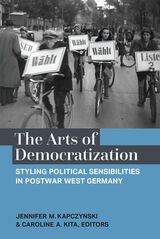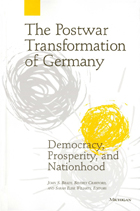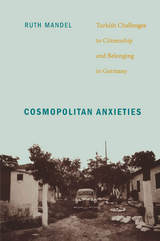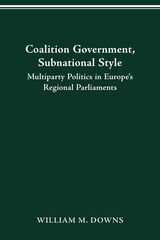The Arts of Democratization: Styling Political Sensibilities in Postwar West Germany
University of Michigan Press, 2022
eISBN: 978-0-472-12979-9 | Cloth: 978-0-472-13291-1
Library of Congress Classification JN3971.A91A686 2022
Dewey Decimal Classification 320.943
eISBN: 978-0-472-12979-9 | Cloth: 978-0-472-13291-1
Library of Congress Classification JN3971.A91A686 2022
Dewey Decimal Classification 320.943
ABOUT THIS BOOK | AUTHOR BIOGRAPHY | REVIEWS | TOC | REQUEST ACCESSIBLE FILE
ABOUT THIS BOOK
Scholars of democracy long looked to the Federal Republic of Germany as a notable “success story,” a model for how to transition from a violent, authoritarian regime to a peaceable nation of rights. Although this account has been contested since its inception, the narrative has proved resilient—and it is no surprise that the current moment of crisis that Western democracies are experiencing has provoked new interest in how democracies come to be. The Arts of Democratization: Styling Political Sensibilities in Postwar West Germany casts a fresh look at the early years of this fledgling democracy and draws attention to the broad range of ways democracy and the democratic subject were conceived and rendered at this time.
These essays highlight the contradictory and competing impulses that ran through the project to democratize postwar society and cast a critical eye toward the internal biases that shaped the model of Western democracy. In so doing, the contributions probe critical questions that we continue to grapple with today. How did postwar thinkers understand what it meant to be democratic? Did they conceive of democratic subjectivity in terms of acts of participation, a set of beliefs or principles, or perhaps in terms of particular feelings or emotions? How did the work to define democracy and its subjects deploy notions of nation, race, and gender or sexuality? As this book demonstrates, the case of West Germany offers compelling ways to think more broadly about the emergence of democracy. The Arts of Democratization offers lessons that resonate with the current moment as we consider what interventions may be necessary to resuscitate democracy today.
These essays highlight the contradictory and competing impulses that ran through the project to democratize postwar society and cast a critical eye toward the internal biases that shaped the model of Western democracy. In so doing, the contributions probe critical questions that we continue to grapple with today. How did postwar thinkers understand what it meant to be democratic? Did they conceive of democratic subjectivity in terms of acts of participation, a set of beliefs or principles, or perhaps in terms of particular feelings or emotions? How did the work to define democracy and its subjects deploy notions of nation, race, and gender or sexuality? As this book demonstrates, the case of West Germany offers compelling ways to think more broadly about the emergence of democracy. The Arts of Democratization offers lessons that resonate with the current moment as we consider what interventions may be necessary to resuscitate democracy today.
See other books on: Arts | Democratization | Germany (West) | Kapczynski, Jennifer M. | Political participation
See other titles from University of Michigan Press
